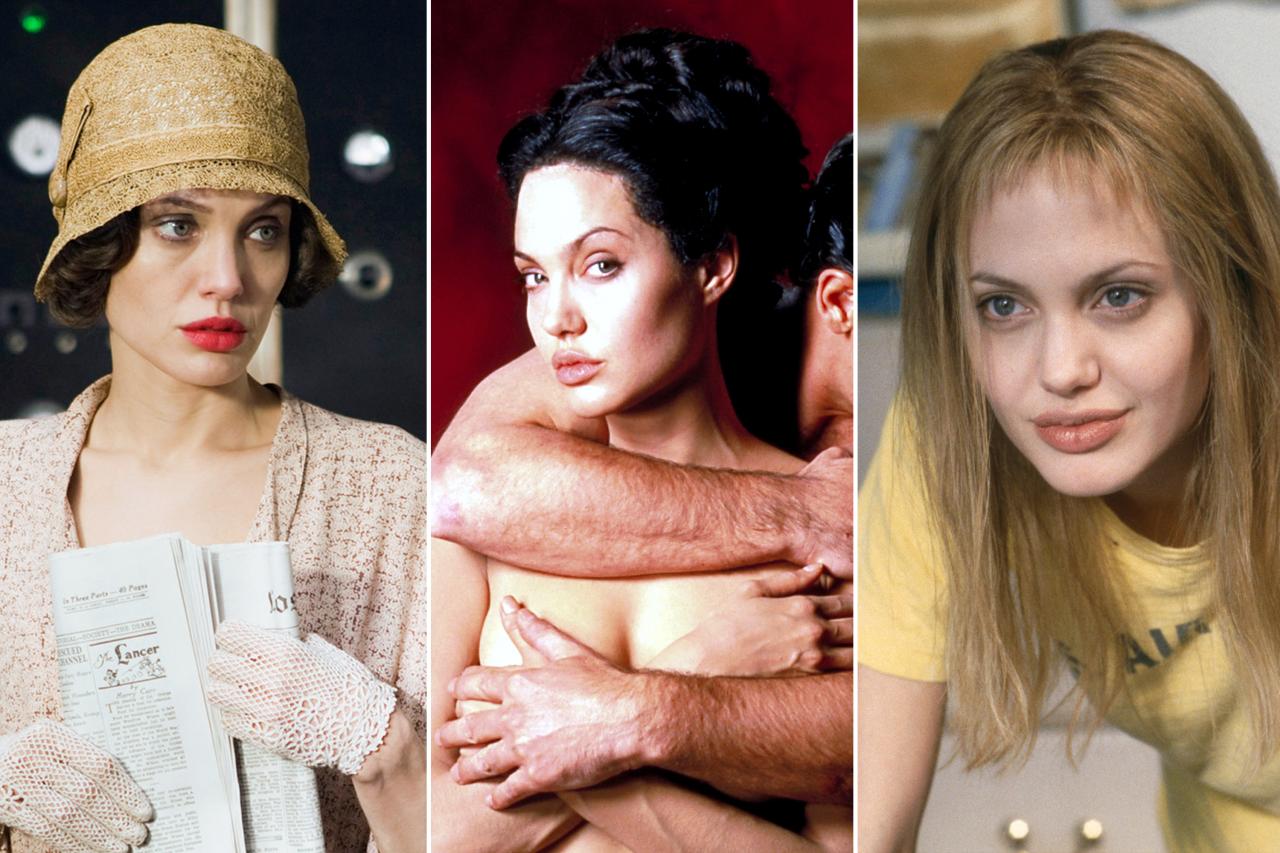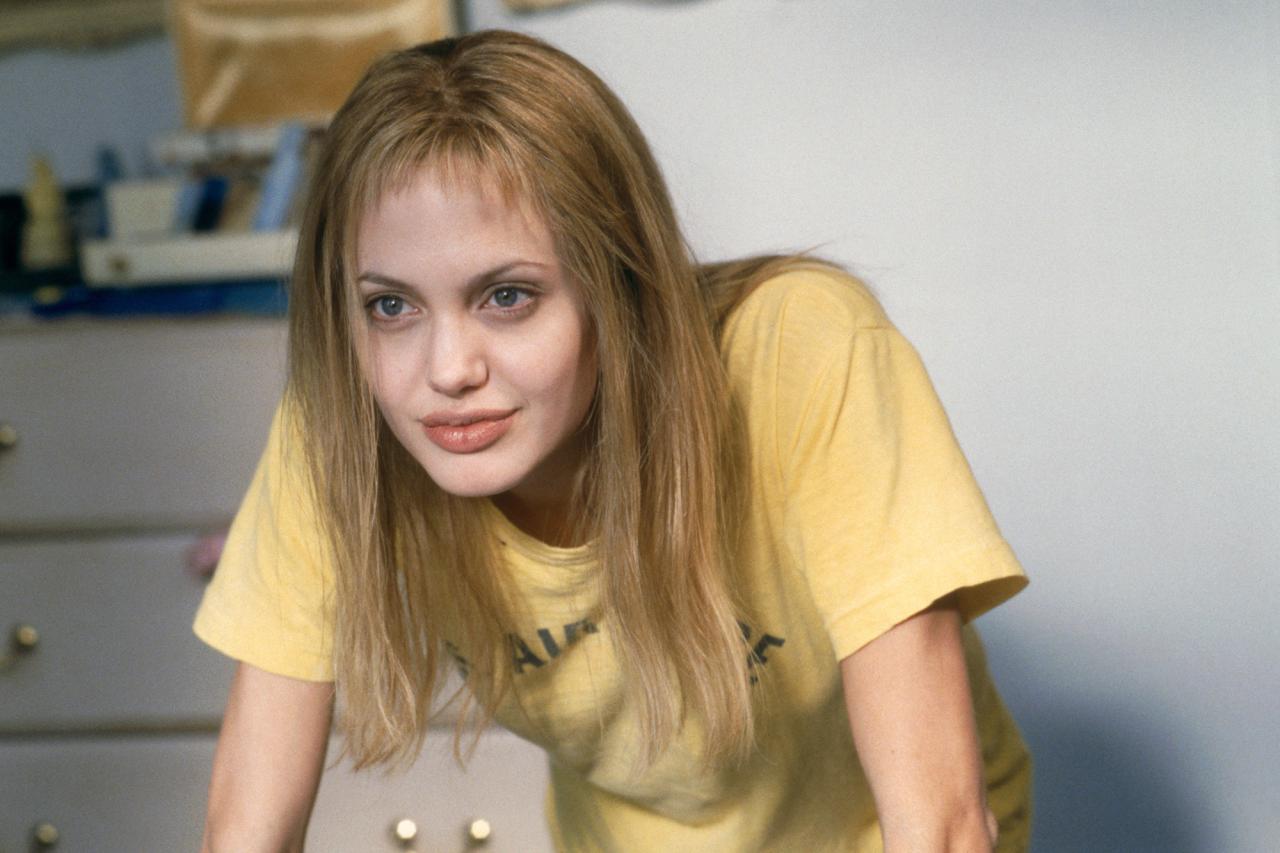It’s always weird to remember that Angelina Jolie once won an Oscar. Sort of like how it’s weird to remember that Angelina Jolie used to wear a vial of Billy Bob Thornton’s blood wherever she went.
 The actress, 45, has had a twisty journey from Hollywood wild-child to Madonna-eqsue globe-trotting activist. Her movies, by contrast, have been a more consistent abysmal-to-fair.
The actress, 45, has had a twisty journey from Hollywood wild-child to Madonna-eqsue globe-trotting activist. Her movies, by contrast, have been a more consistent abysmal-to-fair.
Here are some of Jolie’s best performances — and a few that we’d prefer to forget.
“Girl, Interrupted” (1999)

Angelina Jolie won her first and only Oscar for playing a sultry sociopath in “Girl, Interrupted.”
©Columbia Pictures/Courtesy Eve
At 24, Jolie established a pattern she’d often repeat — being the best part of a meh movie. In “Girl, Interrupted,” she plays a likable, unpredictable sociopath at a mental hospital who enables Winona Ryder’s character by encouraging her to stop taking her meds. She shouts and laughs and kicks and scratches and smokes. It’s an electric performance that won her her only Oscar, for Best Supporting Actress. During a promotional appearance on “Late Night with Conan O’Brien,” Jolie was a witchy cool girl with blue hair that few can remember now. “I don’t think you’re as decent as you seem,” she flirtily told O’Brien. “Everybody’s gotta be more than they are. I think we’re all repressed, a little repressed. We’re all held back a little.”
“Lara Croft: Tomb Raider” (2001)

Was this a harbinger of what was to come? Angelina Jolie explored her bland side in “Lara Croft: Tomb Raider.”
Meet Angelina Jolie: action star. Stamping her as an A-lister who can carry big-budget movies was her role as a Sєxualized video game archaeologist with ᴅᴇᴀᴅly aim. But the steely, unshakable character also foreshadowed Jolie’s descent into blandness. Behind Lara’s eyes was nothing but a shackled actress.
“Original Sin” (2001)

Angelina Jolie plays the mail order bride of Antonio Banderas in the tacky melodrama “Original Sin.”
This film is aptly named. Considered by some to be Jolie’s worst movie ever, it holds a 12 percent rating on RottenTomatoes and has a sultry poster that looks like it was stolen from the Cinemax dumpster. She plays a mail order bride from, um, Delaware, who is brought to Cuba to wed a rich dude played by Antonio Banderas. In one scene, another man grabs her on the stairs and as she struggles to break free, he whispers, “It tickles my d–k when you beg.” And they say romance is ᴅᴇᴀᴅ!
“Changeling” (2008)

Jolie returned to form in “Changeling,” Clint Eastwood’s period drama about a wronged mother.
©Universal/Courtesy Everett Col
This Clint Eastwood-directed period picture was Jolie’s last decent movie (I refuse to count “Kung Fu Panda”). She got an Oscar nod for it, and it’s no wonder — she pulled out all the stops. Playing a mother who believes her son has been switched out with a different boy — and who the police think is a loon — she’s sent to a sanatorium and given dramatic electroshock therapy. If wrongful electrocution doesn’t get you an Academy Award nomination, what will?
“The Tourist” (2010)

Everybody hates tourists, as well as the movie “The Tourist,” starring Johnny Depp and Angelina Jolie.
This romance-comedy-drama-thriller mincemeat has new relevance this week — because the critically derided movie mystifyingly was nominated for three 2011 Golden Globe Awards. It was just announced that the infamously batty awards show won’t air on NBC next year because of boycotts due to lack of diversity. Maybe they should’ve canceled the show after the Hollywood Foreign Press ᴀssociation deemed Jolie and Johnny Depp — both terrible — worthy of the тιтle “Best.”
“By The Sea” (2015)

Part 2 in Jolie’s “The Brad Pitt Collection” was markedly different from Part 1. 2005’s “Mr. and Mrs. Smith — a fun action comedy — is where the two stars’ affair is said to have started, leading to the shocking breakup of Pitt’s marriage to Jennifer Aniston. He wedded Jolie in 2014, and they have six children together. But their second movie, “By The Sea,” was, as The Post’s Lou Lumenick wrote, “pretentiously arty, humorless.” Kind of like their marriage, which ended four years later.



